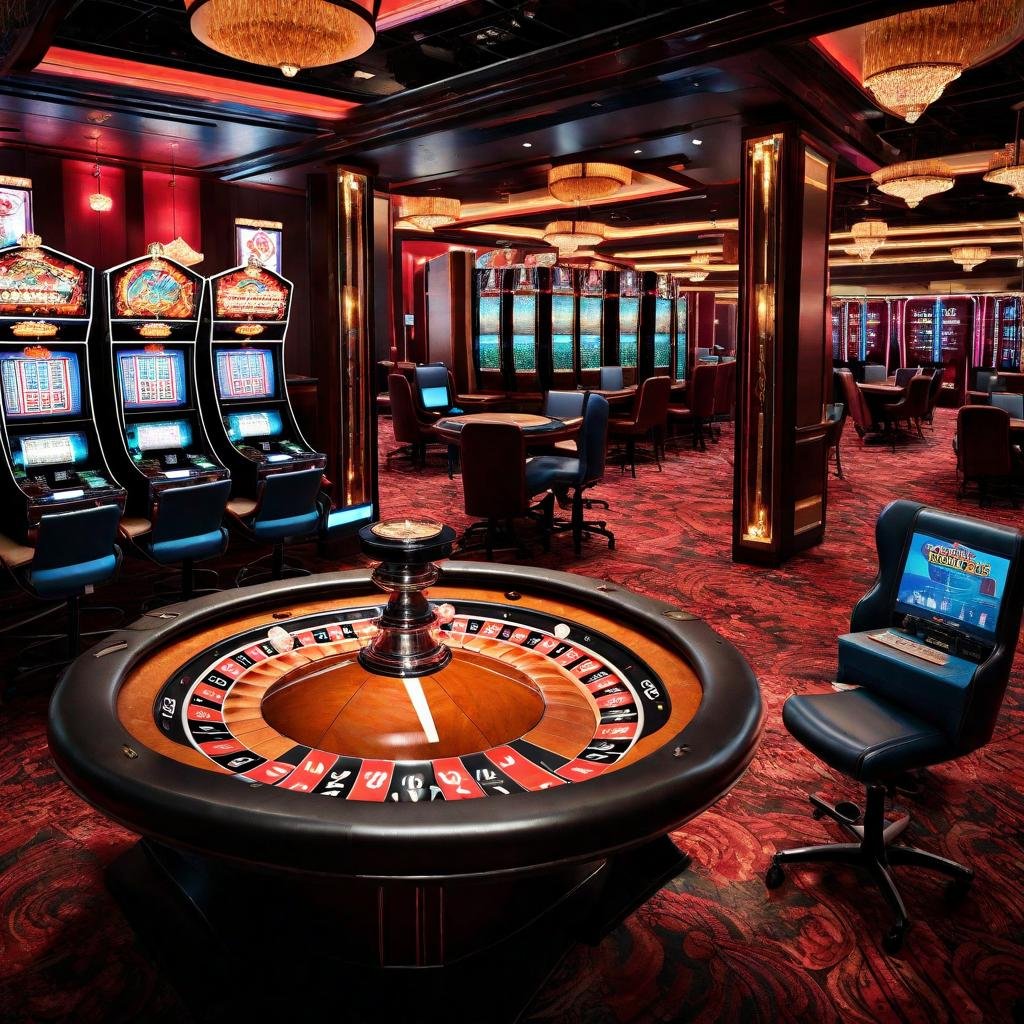
Casino experiences have fascinated players throughout history, progressing from basic recreational activities to intricate adventures that combine luck, skill, and amusement. From the ancient roots of gambling in civilizations such as Mesopotamia and Rome to the glitzy corridors of current casinos, the evolution of these games uncovers much about our nature and our connection with chance. As cultures have merged and technological advancements have occurred, casino games have changed, reflecting societal changes and advancements in gameplay.
The initial iterations of gambling likely involved simple dice games and betting on the outcomes of sporting events. As time passed, these early games grew into more complex games like card games, roulette, and the multitude slot games that fill the floors of casinos today. Each period brought its distinct regulations, design elements, and social relevance. At present, casino games persist in evolving with the rise of online platforms, enabling players from all corners of the globe to join in a collective experience, further fusing the traditional with the digital age.
Ancient Roots of Gambling Activities
Gaming activities have roots that stretch back to old societies, where wagering was strongly integrated in social traditions and cultural rituals. The earliest known forms of betting emerged in ancient Mesopotamia around 3000 BC, involving basic dice activities made from knuckle material. These early games laid the basis for more advanced betting activities, demonstrating human beings’ natural desire to seek wealth and entertainment through chance.
As civilizations progressed, so did their gambling interests. In historic China, around 2300 BC, tiles were unearthed that resembled early basic forms of a lottery game activity. More organized instances of betting arose in the ancient Roman civilization, where games of luck were a common recreation, often occurring in social events. The Romans developed different wagering games, which included dice and table activities, showing the pervasive nature of betting across various economic classes.
With the flow of time, these primitive games contributed to the development of contemporary casino games. Sunwin In the medieval period, playing card games emerged prevalent in European culture, paving the way for the professional gambling establishments we know today. The change from informal gambling to organized gaming in pubs and private homes marked a major shift in how people engaged with games of chance, leading to the subsequent creation of gaming houses as specialized places for gambling.
The Emergence of Modern Casino Gaming
The final 1960s and 1970s marked a pivotal transition in the field of gaming, fueled by technological progress and changes in societal views towards wagering. The emergence of personal computers and the World Wide Web revolutionized the way players engaged with their preferred casino games. Virtual casinos emerged, allowing players to enjoy traditional table games like poker and blackjack from the safety of their own homes. This new online environment not only broadened availability to casino games but also attracted a younger demographic who found the convenience and variety appealing.
As online gambling gained popularity, so did innovations in gaming technology. The development of sophisticated software and visual elements transformed conventional gambling games into engaging experiences. Players could now interact with live live dealers through real-time broadcasts, bringing the feel of brick-and-mortar casinos directly into their living rooms. This fusion of live gaming with digital interfaces created a novel combination that elevated the social aspect of gambling, making it possible for individuals to engage and compete with fellow gamers around the world.
Furthermore, the growth of gaming on mobile devices dramatically changed the gambling environment. With the ubiquitous use of mobile phones and touch devices, players can enjoy their favorite casino games everywhere, whenever. Mobile applications offer a wide selection of options tailored for mobile screens, serving the dynamic lifestyle of contemporary gamers. This easy access has produced rising engagement in casino games, driving the rapid expansion of the gaming industry. As a result, the outlook of casino gaming continues to evolve, responding to new technologies and shifting consumer preferences.
How Technology Influences Casino Games
Technology’s advancement has significantly transformed casino games, improving the overall experience for players for players around the world. With the introduction of the internet, online casinos were created, allowing players to play their preferred games from the safety of their own homes. This shift not only made casino games more available but also increased the variety of games available, as online platforms could offer many different versions of traditional games without the physical constraints of brick-and-mortar establishments.
The rise of mobile technology further revolutionized the casino gaming landscape. With the proliferation, players now have the ability to play casino games whenever and wherever they want. This flexibility has resulted in the creation of dedicated mobile applications and optimized websites that offer smooth gaming experiences. Additionally, advancements such as live dealer games have delivered the genuine feel of a casino into players’ homes, connecting between physical and online gaming.
Moreover, advancements in AI and VR are leading to the next generation of casino games. AI improves game design and player interaction, creating tailored experiences based on user behavior and preferences. Meanwhile, virtual reality offers immersive environments where players can interact in a virtual casino environment, making the gaming experience more exciting and lifelike. As technology continues to evolve, the future of casino games seems bright, filled with limitless opportunities for advancements and entertainment.